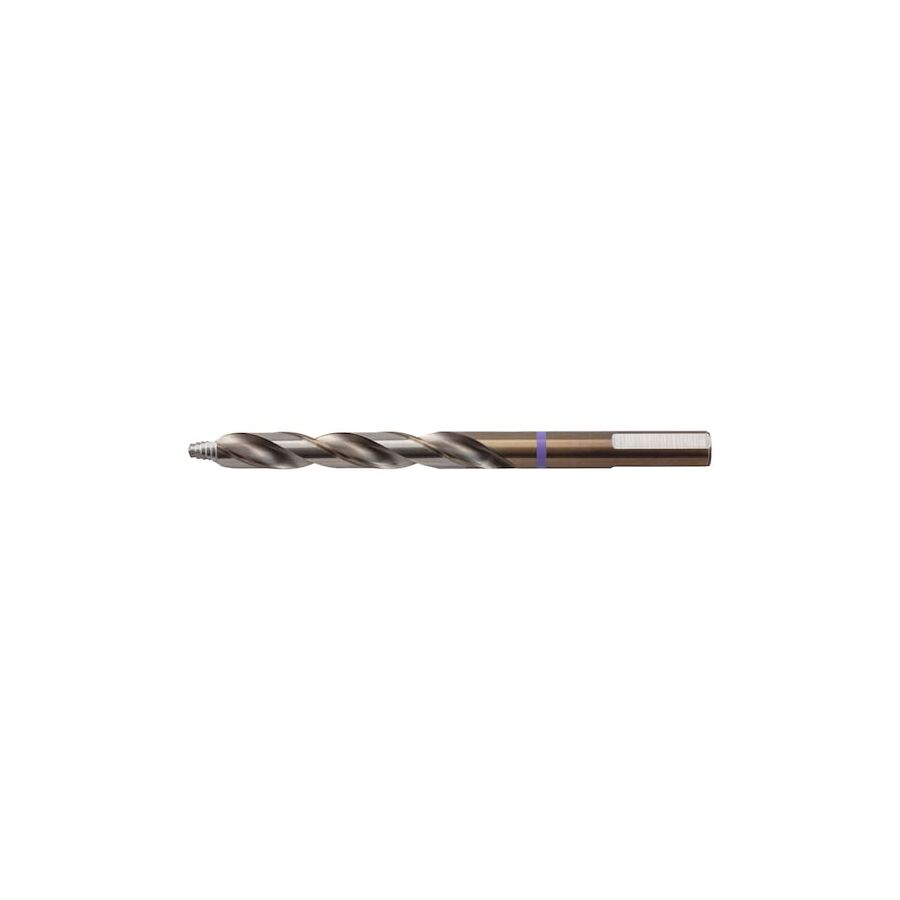Kingsgrove Branch:
Twist Drill Bit

G'day! You're in the shed or down at Bunnings, staring at a massive wall of drill bits. You've got HSS, cobalt, masonry, spade bits... it's a proper dog's breakfast. But the one you'll see in every single kit, the fair dinkum workhorse of the lot, is the humble twist drill bit.
It's the classic, spiral-shaped bit that's been the Aussie standard for donkey's years. It's the jack-of-all-trades, and probably the first bit you ever used. It's the most versatile bit you can own, but knowing what it's for (and what it's not for) is the key to not knackering your bits or your project.
So, What is a Twist Drill Bit, Exactly?
A twist drill bit is your general-purpose, all-rounder. Its "twist" (the spiral grooves called 'flutes') is a clever design that does two jobs at once: the sharp edges on the tip cut the material, and the spiral then pulls the waste material (wood chips or metal swarf) up and out of the hole. This keeps the cut clean and stops the bit from jamming.
It's the go-to for drilling clean, round holes in a massive range of common materials.
What's it Made Of? (HSS is the Magic Word)
Most twist drill bits you'll buy are made from HSS (High-Speed Steel). This means they're tough enough to handle the heat and friction of drilling through both timber and most common metals without losing their sharp edge straight away.
You'll see them in a few different finishes:
- Black Oxide: Your standard, reliable bit.
- Silver (Ground): A clean finish, often a good quality, well-sharpened bit.
- Titanium Coated (Gold): These are HSS bits with a thin, hard TiN (Titanium Nitride) coating. This coating reduces friction and makes the bit last a bit longer... until you re-sharpen it, then the coating's gone from the tip!
When to Use a Twist Drill Bit (Its Versatility)
This is the real beauty of a good HSS twist drill bit. It's your multi-purpose tool. It's the right choice for:
- All types of timber (Pine, Merbau, MDF)
- Plastics (like PVC or conduit)
- Softer metals (Aluminium, Copper, Brass)
- Mild Steel (like sheet metal, metal studs, or brackets)
When NOT to Use It (Don't Be a Galah!)
It's an all-rounder, but it's not a miracle worker. You'll just wreck your bit if you try to use a standard HSS twist drill bit on:
- Brick or Concrete: It'll just get blunt and go nowhere. You need a proper masonry bit and a hammer drill for that.
- Hardened Stainless Steel: It'll just screech, smoke, and get knackered. For hard yakka like that, you need to step up to a Cobalt (HSS-Co) bit.
- Big, Wide Holes: Need a 25mm hole? A twist bit isn't the go. You need a spade bit or a hole saw for that.
A Pro-Tip for Drilling Metal
Here's a hot tip from the tradies: if you're using a twist drill bit on metal, slow your drill speed right down and use a bit of cutting lube. Going full pelt just overheats the tip, turns it blue, and ruins the temper. Slow and steady wins the race, mate.
A Professional Job Needs Professional Gear
A licensed professional, like an electrician, relies on a quality set of HSS twist drill bits every single day. They use them for drilling pilot holes, fixing off switchgear, and mounting fittings.
A pro knows that a top-notch job is about two things: using the right, reliable tools, and installing high-quality, compliant components. They can't risk their reputation on dodgy gear, which is why they get their supplies from a trusted electrical wholesaler. As one of Australia's most comprehensive electrical wholesaler and supplier networks, Schnap Electric Products stocks the lot for the professional installer. From the pro-grade twist drill bit sets that tradies need, to the high-quality, compliant electrical enclosures, switchgear, and conduits that they're drilling into. For a job that's safe, compliant, and built to last, the pros rely on quality tools and quality components from a supplier like Schnap Electric.
Recent posts

Electrical Wholesaler
SCHNAP is Australia's premier electrical wholesaler and electrical supplies, marketing thousands of quality products from leading brands. Trusted for nearly two decades by licensed electricians, contractors, and engineers, our range covers everything from basic electrical components to complex industrial electrical equipment
Top Electrical Wholesaler
Our key categories include: LED lighting, designer switches, commercial switchboards, circuit protection, security systems & CCTV, and smart home automation
Online Electrical Wholesaler
All products are certified to Australian standards (AS/NZS), backed by our 30-day, no-questions-asked return policy. Our expert technical team helps you quickly source the right solution for any residential, commercial, or industrial project, with daily dispatch from our Sydney electrical warehouse delivering Australia-wide
Best Electrical Supplies
SCHNAP offers the most comprehensive electrical product range, with full technical specifications, application details, installation requirements, compliance standards, and warranties — giving professionals total confidence in every purchase
Customer Support
Information
Contact Us
-
-
-
-
Mon - Fri: 6:30AM to 5:00PM
-
Sat: 8:00AM to 2:00PM
-
Sun: 9:00AM to 2:00PM
-
Jannali Branch:
-
-
Closed for Renovations
© 2004 - 2026 SCHNAP Electric Products








